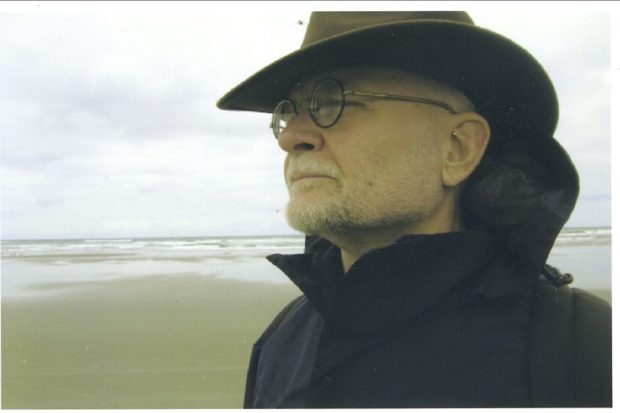
By Thomas Quinn
 With eager anticipation I attended the Aug. 9, Fresno Filmworks showing of the documentary We Steal Secrets: The Story of WikiLeaks by Alex Gibney. About 4/5ths through it I walked out in disgust.
With eager anticipation I attended the Aug. 9, Fresno Filmworks showing of the documentary We Steal Secrets: The Story of WikiLeaks by Alex Gibney. About 4/5ths through it I walked out in disgust.
I had not heard of this documentary. It was sponsored by organizations for which I have great respect: Community Alliance, the Fresno ACLU and the Women’s International League for Peace & Freedom (WILPF). Spokespersons for these groups enthusiastically introduced the showing. Given these seals of approval by Fresno’s leading progressive organizations, I was brimful of expectation that We Steal the Secrets would shine an informative light on revelations by WikiLeaks of the lies, deceptions and secrets of our Great Leviathan, the National Security State (NSS).
That light, it turned out, was neither informed nor informative about those aspects of the NSS. Instead, viewers were marinated in lurid, tabloid-soaked hits on Bradley Manning (a physical weakling, sexually deranged and identity confused) and Julian Assange (narcissistic, coolly sadistic, a sexual predator). Imagine being taught about the civil rights revolution through Martin Luther King’s lustful philandering or being enlightened about the Pentagon Papers through Daniel Ellsberg’s LSD trips, group sex and the files of his psychiatrists. But those figures were part of powerful movements that knew how to keep the focus on issues of war and civil rights.
Did I just write that We Steal Secrets wasn’t informative about the workings of the NSS? Wrong! NSS representatives and fellow travelers, from the former head of the CIA and National Security Agency, Michael Hayden, on down, were enthusiastic participants in the documentary. (The misleading title derives from a Hayden quote: the “We” of We Steal Secrets refers to the CIA/NSA, not WikiLeaks, which does not “steal secrets.”) These luminaries smartly guide us through the maze of WikiLeaks’ criminal activities and the criminal mind of its leader.
The documentary is “informative” as a brilliant exemplification of the smooth, subtle methods of agitprop. It deserves study in courses on propaganda techniques and how the private sector (a liberal seeming Hollywood documentary) covertly works in tandem with the aims of the “public” sector NSS.
Only toward the film’s end do we learn that neither Assange nor the staff of WikiLeaks—not mentioned—cooperated with the filmmakers. All footage with Assange are outtakes from other sources, and Gibney pumps up the WikiLeaks resumes of ex-staff who did cooperate—one at least fired long before production began, also not mentioned.
The best place to begin study of these agitprop techniques is the critical commentary, published online by WikiLeaks, alongside the entire script, including links to hard evidence supporting the WikiLeaks critique. The organizing principle behind the film’s agitprop was stated in C. Fred Alford’s brilliant 2001 book, Whistleblowers: Broken Lives and Organizational Power. The key strategy, he wrote, is “to transform an act of whistleblowing from an issue of policy and principle into an act of private disobedience and psychological disturbance.”
Better to use Gibney’s own words expressing this principle, as quoted by Assange in the WikiLeaks critique: “The initial presentation of the story was that Bradley Manning was a pure political figure… I think he was alienated; he was in agony personally over a number of issues. He was lonely and very needy… He had this idea that he was in the wrong body and wanted to become a woman… I think it raised big issues about who whistleblowers are, because they are alienated people who don’t get along with people around them, which motivates them to do what they do” (from a Sundance interview with Gibney).
Neither WikiLeaks’ non-cooperation nor its detailed takedown of the documentary or the scathing critiques by respected progressive thinkers such as Chris Hedges in Truthdig were mentioned by the sponsors in their remarks before the showings or in the Community Alliance’s front-page article. At the end of Hedges’ essay in Truthdig, “We Steal Secrets: State Agitprop” (June 2, 2013), you can link to WikiLeaks’ demolition of the documentary.
As the WikiLeaks critique makes clear, the deceptions, creative editing and lies of this documentary take many hours to unpack. Space precludes that examination here.
I might have happily sat through the whole film had it been presented by one of Fresno’s vigorous protofascist, pro-war groups. But that the peace groups in Fresno who I most admire sponsored it as if it might reflect “our” views was disheartening. Certainly, the zeitgeist for a democratic, anti–National Security State politics is dim in this country, but do we need to assist turning down those lights?
*****
Thomas Quinn is a capital case private investigator, Vietnam combat veteran and award-winning documentarian (Maximum Security University, about the lethal shooting of prisoners at Corcoran Prison’s solitary housing unit). Contact him at erwinquinn@yahoo.com.
